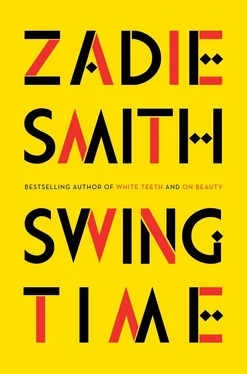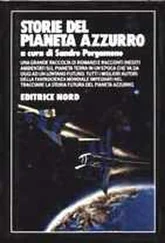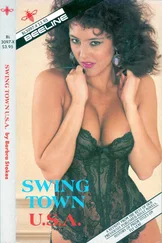Two
Aimee had an unusual attitude to time, but her approach was very pure and I came to admire it. She wasn’t like the rest of her tribe. She didn’t need surgeons, didn’t live in the past, fudge dates or use any of the usual forms of distraction or distortion. With her it really was a matter of will. Over ten years I saw how formidable that will could be, what it could make happen. And all the labor she put into it — all the physical exercise, all the deliberate blindness, the innocence cultivated, the spiritual epiphanies she was able somehow to experience spontaneously, the very many ways she fell in and out of love, like a teenager — all of this came to seem to me effectively a form of energy in itself, a force capable of creating a dilation in time, as if she really were moving at the speed of light, away from the rest of us — stranded on earth and aging faster than her — while she looked down on us and wondered why.
The effect was most striking when one of her Bendigo siblings visited, or when she was with Judy, whom she’d known since secondary school. What did these late-middle-aged people, with their fucked-up families and wrinkles and disappointments and difficult marriages and physical ailments — what did any of this have to do with Aimee? How could any of these people have grown up with her, or once slept with the same boys or been able to run in the same way at the same speed down the same street in the same year? It wasn’t only that Aimee looked very young — although of course she did — it was that an almost unbelievable youthfulness pulsed through her. It went right down to the bone, affecting the way she sat, moved, thought, spoke, everything. Some, like Marco, her bad-tempered Italian chef, were cynical and bitter about it, they claimed it was only money that did it, that it was all a side-effect of money and no work, never any real work. But in our travels with Aimee we met plenty of people with a lot of money who did nothing, far less than Aimee — who, in her own way, worked hard — and most of them seemed as old as Methuselah. And so it was reasonable to assume, and a lot of people did, that it was her young lovers that kept Aimee young, this was after all basically her own argument for years — that and the lack of children. But this theory could not survive the year she canceled the South American and European tours, and the arrival of her son, Jay, and, two years later, baby Kara, and the quick dispatching of one middle-aged father and boyfriend, and the obtaining and subsequent even swifter dispatching of the second father and husband, who was, true enough, not much more than a boy himself. Surely, people thought, surely this much experience, crammed into a few years, will leave its mark? But while the rest of the team came out of that whirlwind exhausted, completely wrung out, ready to lie down for a decade, Aimee herself proved largely unaffected, she was more or less as she had always been, full of a terrifying amount of energy. After Kara was born she went straight back into the studio, back to the gym, back on tour, more nannies were hired, tutors appeared, and she emerged from it all, a few months later, seeming like a mature twenty-six-year-old. She was almost forty-two. I was just about to turn thirty, it was one of those facts about me that Aimee had decided to obsessively retain, and for two weeks beforehand she kept insisting that we’d have a “ladies’ night,” just the two of us, phones off, total focus, mindfulness, cocktails, none of which I expected or had asked for, but she wouldn’t let it go, and then of course the day came and no mention at all was made of my birthday, instead we did press for Norway all day, after which she ate with her children, while I sat in my room alone and tried to read. She was still in the dance studio at ten when I was interrupted by Judy, sticking her head, with its unchanged feather-cut, remnant of her Bendigo youth, round the door, to tell me, without looking up from her phone, that I was to remind Aimee we were flying to Berlin the next morning. This was in New York. Aimee’s dance studio was big as a ballroom, a mirrored box with a barre of walnut that stretched all the way round. It had been dug out of the basement of her townhouse. When I walked in she was sitting in the horizontal splits, completely still, as if dead, her head thrown forward, a long fringe — red at the time — covering her face. Music was playing. I waited to see if she’d turn to me. Instead she sprang up and began running through a routine, all the time facing her own reflection in the mirrors. It had been some time since I’d seen her dance. I rarely sat in the crowd for the shows any more: that aspect of her life felt very distant, the artificial performance of someone I had come to know too well at a deeper, granular level. A person for whom I scheduled abortions, hired dog walkers, ordered flowers, wrote Mother’s Day cards, applied creams, administered injections, squeezed spots, wiped very occasional break-up tears, and so on. Most days I wouldn’t have known I worked for a performer. My work with and for Aimee happened in cars, mostly, or on sofas, in airplanes and offices, on many kinds of screens and in thousands of e-mails.
But here she was, dancing. To a song I didn’t recognize — I hardly ever went to the studio any more, either — but the steps themselves were familiar, they hadn’t changed much, over the years. The greater part of her routine has always consisted primarily of a form of strident walking: a powerful, pacing step that marks the boundaries of whatever space she’s in, like a big cat methodically prowling around her cage. What surprised me now was its undimmed erotic force. Usually when we compliment a dancer we say: she makes it look easy. This is not the case with Aimee. Part of her secret, I felt as I watched her, is the way she’s able to summon joy out of effort, for no move of hers flowed instinctively or naturally from the next, each “step” was clearly visible, choreographed, and yet as she sweated away at their execution, the hard work itself felt erotic, it was like witnessing a woman cross the line at the end of a marathon, or working toward her own orgasm. That same ecstatic revelation of a woman’s will.
“Let me finish!” she cried out, to her reflection.
I walked over to the far corner, slid down the glass wall, sat on the floor and reopened my book. I’d decided to establish a new rule for myself: read for half an hour an evening, no matter what. The book I had chosen was not long, but I hadn’t got very far in it. Reading was basically impossible when you worked for Aimee, it was seen, by the rest of the team, as deeply impractical and I think in some sense fundamentally disloyal. Even if we were flying a long stretch — even if we were heading back to Australia — people were either answering Aimee-related e-mails or flicking through a stack of magazines, which could always be disguised as work, for Aimee was either in the magazine you had in your hand or very soon would be. Aimee herself read books, sometimes decent books, recommended by me, more often self-help or diet nonsense that Judy or Granger put in front of her, but Aimee’s reading was something separate, she was Aimee after all and could do as she pleased. Sometimes she took ideas from the books I gave her — a time period or a character or a political idea — which would then end up, in a flattened and vulgar form, in one video or song or another. But this did not change Judy’s opinion on reading in general, for her it was a kind of vice because it took up valuable time we might otherwise spend working for Aimee. Still sometimes it was necessary, even for Judy, to read a book — because it was about to become a movie vehicle for Aimee, or was otherwise necessary for a project — and in these situations she would use our long-haul flights to read a third of whatever it was, with her feet up, and a lemon-sucking look on her face. She never read more than a third—“I get the basic idea”—and when she’d finished she would give one of four possible judgments. “Zippy”—which was good; “Important”—which was very good; “Controversial”—which could be either good or bad, you never knew; or “Lidderary,” which was pronounced with a sigh and an eye roll and was very bad. If I tried to make a case for whatever it was Judy would shrug and say: “What do I know? I’m just a little bogan girl from Bendigo,” and this, said within Aimee’s earshot, killed any project dead. Aimee never underestimated the importance of the heartland. Though she’d left Bendigo behind — did not sound like her people any more, had always sung with a faux-American accent and often spoke of her childhood as a form of living death — she still considered her hometown a potent symbol, almost a form of bellwether. Her theory was that a star has New York and LA in their pocket, a star can take Paris and London and Tokyo — but only a superstar takes Cleveland and Hyderabad and Bendigo. A superstar takes everybody everywhere.
Читать дальше












